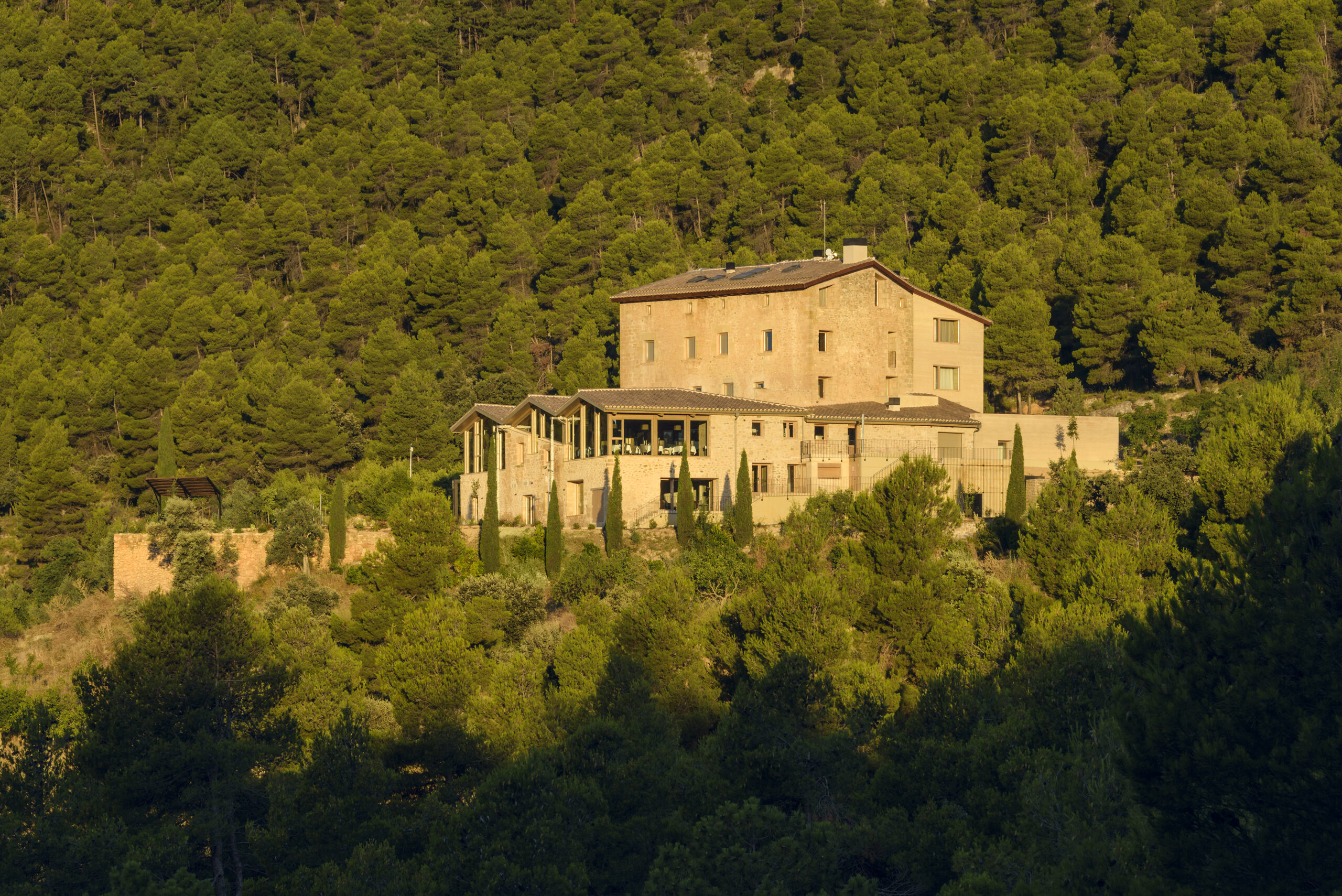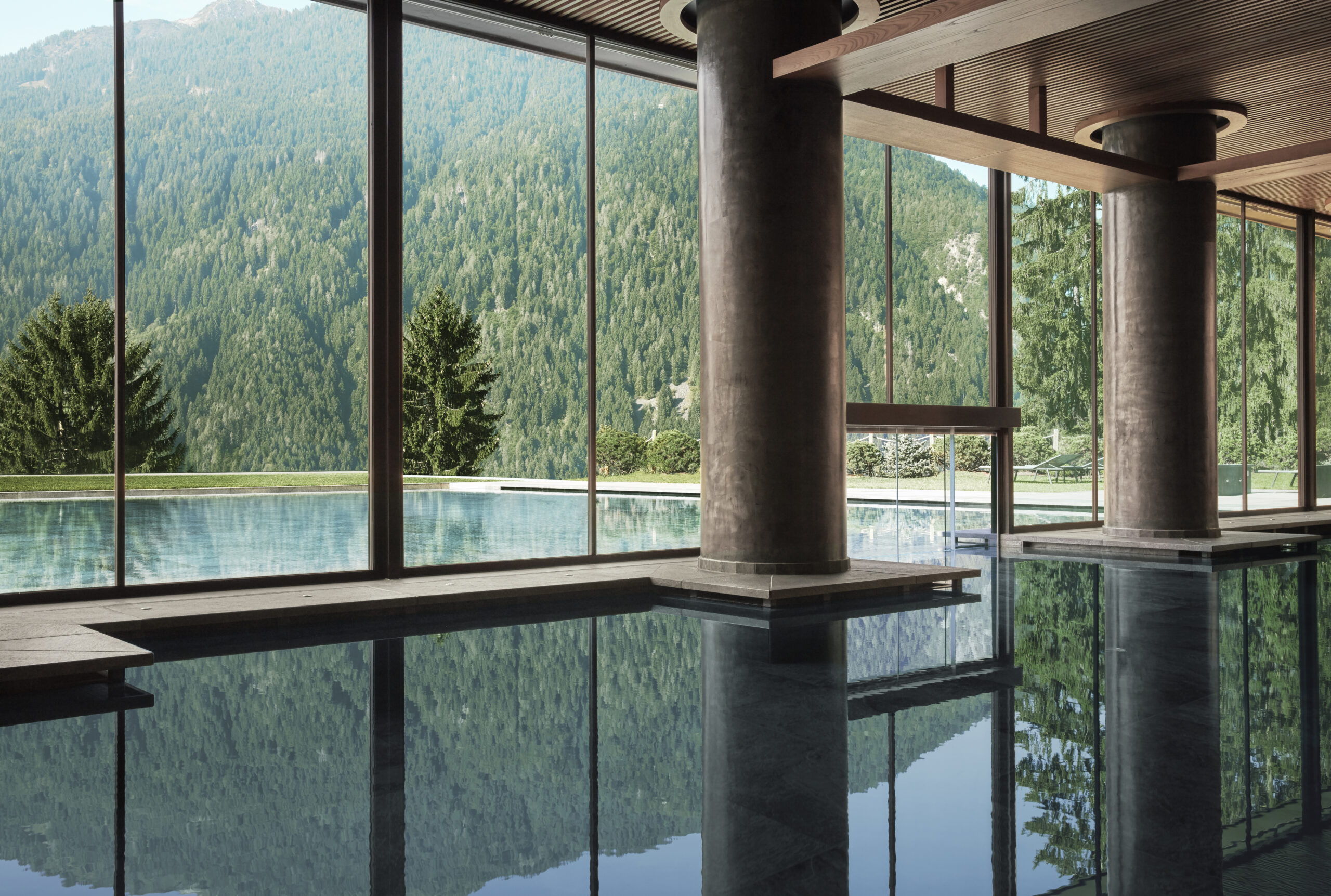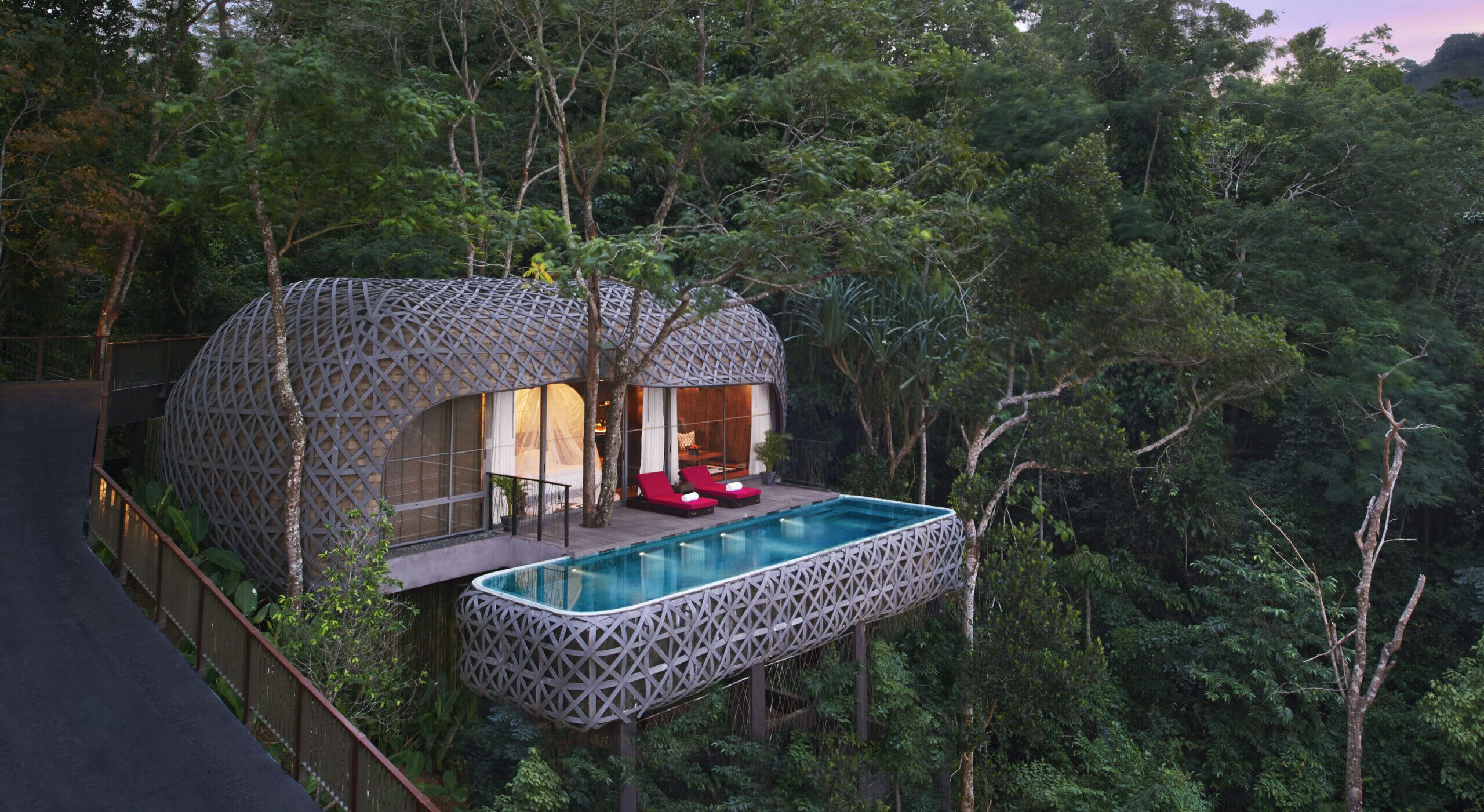Small Luxury Hotels of the World (SLH) has launched the Considerate Collection, a curated edit of ‘actively sustainable’ high-end hotels. Jenny Southan reports
This month, SLH debuted its Considerate Collection, a “community of hotels going the extra eco mile, proving that luxury is compatible with longevity”. The concept is similar to Preferred Hotels’ Beyond Green collection, indicating that sustainable hotel edits are becoming a trend.
From the “biodiversity-promoting” Tabacón Thermal Resort & Spa in Costa Rica to the “culture-preserving” Domaine de Manville in France, the Considerate Collection features 26 hotels in 16 countries, each “meeting the highest criteria in sustainability”.
Daniel Luddington, vice-president of development for SLH says: “We’ve carefully curated the Considerate Collection to spotlight luxury boutique hotels exemplary in their sustainability efforts, making it easier for customers and the travel trade to make better-considered choices.
“Staying in small, independent hotels goes hand in hand with travelling sustainably and all SLH hotels are already steeped in the many facets of sustainable hospitality, so we haven’t had to look far outside of our portfolio for the launch collection.”
He adds: “This is not about creating a new brand, but rather building on the strong brand values that have existed within SLH since inception – independent spirits, community-centric, questioners, storytellers and the ultimate belief that small is beautiful and a better way to travel.”
Here is the full list of hotels from the Considerate Collection:
Americas
- GAÏA Riverlodge, Cayo District, Belize
- Hotel Nantipa, Santa Teresa de Cobano, Costa Rica
- Tabacón Thermal Resort & Spa, La Fortuna de San Carlos, Costa Rica
- Petit St Vincent, Vincent Island, Saint Vincent and the Grenadines
Asia-Pacific

- Bhutan Spirit Sanctuary, Shaba, Bhutan
- Gangtey Lodge, Phobjikha Valley, Bhutan
- Heritage Le Telfair Golf & Wellness Resort, Bel Ombre, Mauritius
- The Fortress Resort & Spa, Galle, Sri Lanka
- Keemala, Phuket, Thailand
- Pimalai Resort & Spa, Lanta Island, Thailand
- The Racha, Phuket, Thailand
Europe, Middle East and Africa
- Columbia Beach Resort, Limassol, Cyprus
- Domaine de Manville, Les Baux de Provence, France
- Domaine des Etangs, Massignac, France
- Le Domaine d’Ablon, Ablon, France
- Hotel Rangá, Hella, Iceland
- FORESTIS, Brixen, Italy
- Lefay Resort & Spa Lago di Garda, Gargnano, Italy
- Lefay Resort Dolomiti, Pinzolo, Italy
- Susafa, Polizzi, Generosa, Italy
- La Sultana Marrakech, Marrakech, Morocco
- The Dylan Amsterdam, Amsterdam, Netherlands
- Storfjord Hotel, Skodje, Norway
- Hotel Arima & Spa, San Sebastian, Spain
- Torre del Marques, Monroyo, Spain
- Grove of Narberth, Wales, United Kingdom
 To create a “trusted and transparent framework”, SLH has partnered with the Global Sustainable Tourism Council (GSTC) – the international, independent, not-for-profit body established by the United Nations Environment Program (UNEP) and the United Nations World Tourism Organization (UNWTO); and Greenview, whose platform is the only GSTC-recognised sustainable tourism management tool.
To create a “trusted and transparent framework”, SLH has partnered with the Global Sustainable Tourism Council (GSTC) – the international, independent, not-for-profit body established by the United Nations Environment Program (UNEP) and the United Nations World Tourism Organization (UNWTO); and Greenview, whose platform is the only GSTC-recognised sustainable tourism management tool.
Criteria for the Considerate Collection align with GSTC criteria across three key pillars ensuring all the hotels are “community minded”, “cultural custodians” and “environmentally conscious”. This is what SLH says about these pillars…
Community Minded
Many of our hotels are locally owned and family-run, who have a deep rooted, personal connection to the people who make a place special. By ensuring equal employment opportunities to local residents, including managerial positions without discrimination of any kind, the hotel invests in its community while giving guests a more authentic experience of its people’s culture, language, and storytelling.
As champions of local, fair-trade produce, our hotels buy local wherever possible to support the community’s supply chain – whether it’s serving fresh fruit from the morning market where the hotel chef knows the farmer by name, or providing hand-woven bags made by a local artisan for guests to use by the pool.
It is not enough for our hotels to simply give back to the community, they must continuously strive to enrich local lives through social impact initiatives, educational, health, and training programmes, and projects which address the impacts of climate change.
Cultural Custodians
Elements of traditional and contemporary local culture are incorporated in the operations, design, decoration, cuisine, or boutiques of our hotels, while respecting the intellectual property rights of local communities.
Going beyond the maintenance of local buildings, and the protection of culturally, historically, archaeologically, and spiritually significant sites, our hotels aim to enhance and sensitively improve upon properties of cultural interest through ongoing heritage and restoration projects.
Immersing guests in the local culture through an array of authentic activities is integral to our hotel experience, from traditional cooking classes in a rural farmhouse to pottery making in an ancestral ceramics studio
Environmentally Conscious
Conserving resources – our hotels make an active effort to increase their use of renewable energy and sustainable sources such as solar, wind, geothermal or biofuels, while assessing, measuring, and minimising energy and water consumption.
Reducing pollution – greenhouse gas emissions from all sources controlled by our hotels are identified, calculated where possible, and procedures implemented to avoid or minimise them. Wastewater is effectively treated, and is only reused or released safely with no adverse effects to the local population or the environment, while solid waste is reduced, reused or recycled. Significant steps are taken by Considerate Collection hotels to reduce their carbon footprint.
Conserving biodiversity, ecosystems, and landscapes – from coral reef regeneration and ocean conservation to wildlife rewilding and tree reforestation, our hotels play an active role in restoring the natural beauty of our planet. Protected natural parks and areas of high biodiversity value are especially looked after, while any interaction with free roaming wildlife is non-invasive and responsibly managed.

